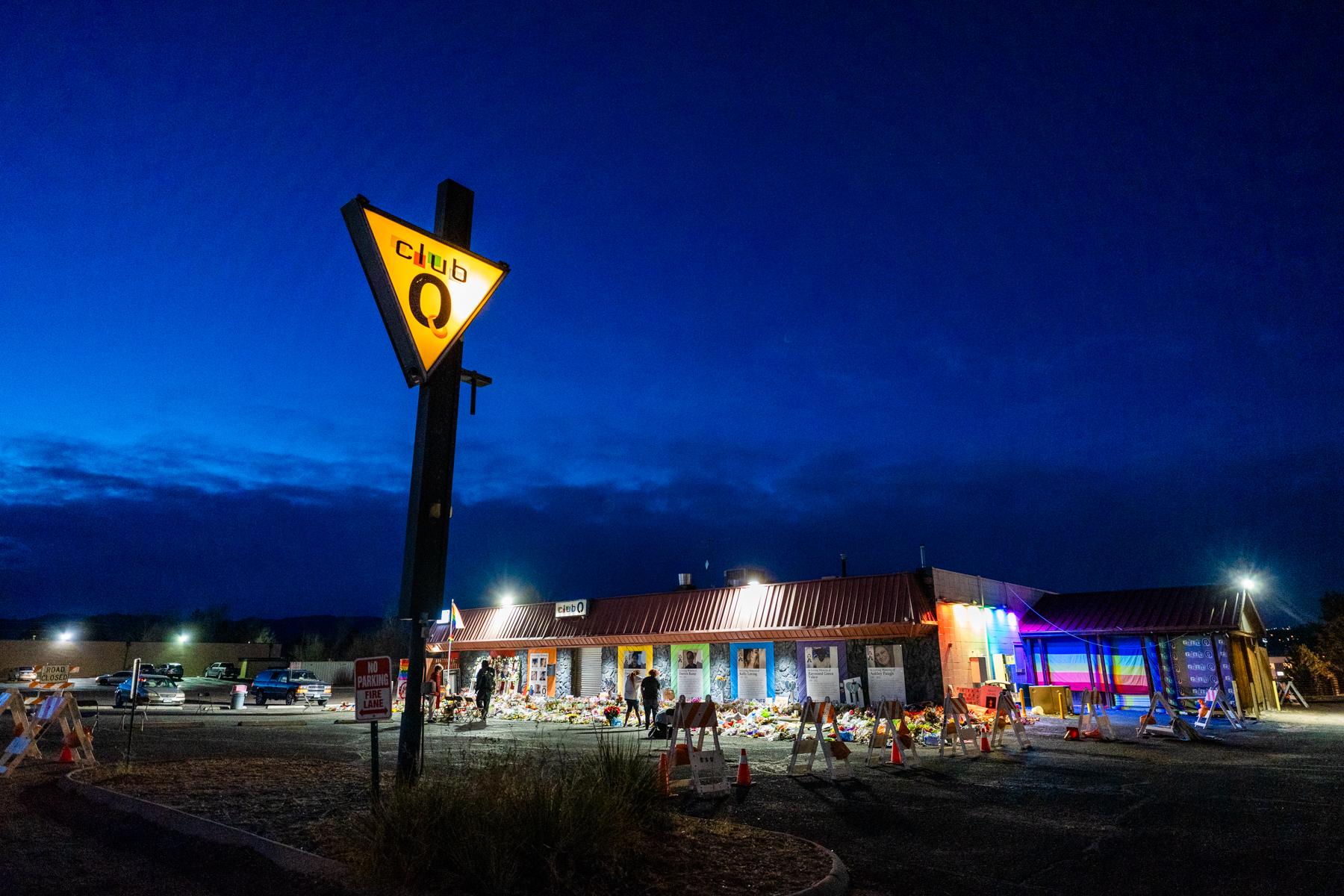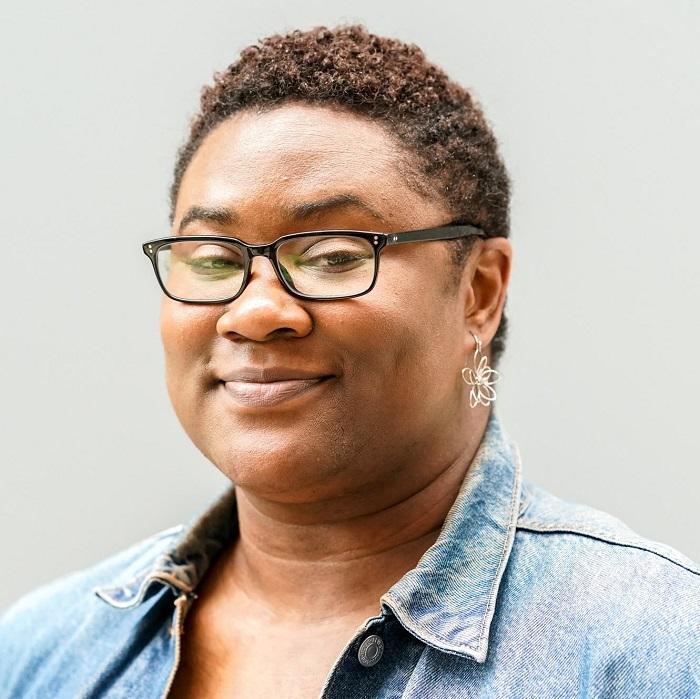
New information was unveiled last week during a two-day preliminary hearing for the person accused of killing five and injuring at least 19 others at Club Q in Colorado Springs in November 2022. Fourth Judicial District Judge Michael McHenry upheld all 323 counts against Anderson Lee Aldrich, 22, including homicide and hate crime charges.
Aldrich is being held without bond.
Aldrich’s attorneys argued Thursday there was no evidence to suggest that their client was motivated by bias, but McHenry ultimately sided with prosecutors and said the evidence given was sufficient at this stage in the proceedings.
The suspect’s alleged actions were responsible for the deaths of five individuals, Raymond Green Vance, 22; Daniel Aston, 28; Ashley Paugh, 35; Derrick Rump, 38; and Kelly Loving, 40.
The suspect attended court in person both hearing days, along with dozens of survivors and families who packed into the small El Paso County courtroom. Prosecutors brought four police witnesses to the stand during the hearing — all officers and detectives from the Colorado Springs Police Department who worked on the case.
An arraignment has been set for May 30. Another hearing is scheduled for March 31 to determine if surveillance footage from Club Q on the night of the shooting will be released to the public.
Here’s what we learned:
Suspect visited Club Q before the shooting
The lead detective in the case, Rebecca Joines, testified that the suspect had been to Club Q on six different occasions over the course of about a year, buying drinks, doing karaoke and attending a drag show. Joines said police confirmed this information through the ID-verification system the club uses to check each patron’s identity each night of business.
Investigators said on Nov. 19, the night of the shooting, Aldrich first came to Club Q shortly after 10 p.m. and stayed for a while before leaving. Aldrich returned and began opening fire on patrons sometime before 12 a.m.
Police said Aldrich's driver's license and vehicle were found in the Club Q parking lot the night of the shooting. There was a baseball cap in the front seat of the car, with a cell phone duct-taped to the bill — the camera facing out. Prosecutors said this was evidence Aldrich planned to livestream the shooting through an app. They said Aldrich also had a QR code on the front of a ballistic vest worn doing the shooting.
Prosecutors make case for hate crime charges
Witness testimonies said the suspect was obsessed with murder and shared pictures online of a rifle scope trained on what appeared to be a gay pride parade, among other things. Detective Jason Gasper testified about a police search of Aldrich's apartment. He said investigators found shooting targets with bullet holes, various items used to build guns and ammunition. One of the targets had rainbow colors emanating from a bullseye in the middle. Officers also said they found a hand-drawn map of Club Q in the apartment.
A major point of debate in this case has been whether there would be enough evidence to support the notion that the suspect intentionally targeted Club Q and LGBTQ people.
Officers also said they found a note on a yellow pad of paper in the suspect’s apartment. In child-like handwriting, the note reads: “Please relieve me of my own fate. I'm drowning in my own wake. How long must I wait for you to rid me of this hate?”
Both prosecutors and defense acknowledged in court that they weren’t sure who wrote the note, however.
District Attorney Michael Allen said his team was able to charge hate crimes in this case in part because a couple of years ago, Colorado changed its “bias” or hate crime law. He said to make hate charges stick, prosecutors used to have to prove someone acted specifically because of bias or hate.
Suspect’s mom may have forced Club Q attendance
An online friend told police that Laura Voepell, Aldrich’s mother, forced Aldrich to go to gay bars. Police were also informed that Voepell is nonbinary. That same friend also said Aldrich was obsessed with homicide and the Nazis. They said Aldrich hated police, minorities and LGBTQ people.
The defense also shed light on multiple 911 calls to Aldrich and Voepell's residence, alleging a troubled home situation with both dealing with mental health challenges.
Suspect’s mental health
The defense focused largely on Aldrich's mental health during the hearing.
“What happened here was senseless, awful and it was tragic,” defense attorney Joseph Archambault said in court Thursday. “But Aldrich’s behavior after this incident says they’re sorry, upset and emotional about what they did. … It’s categorically different than someone who targets a group, and that’s not what Aldrich did. … We have someone who was on a lot of drugs and had mental health issues.”
Defense attorney showed photos of nearly a dozen prescriptions written for the suspect for things like schizophrenia, bipolar disorder and anxiety. There was also a prescription for suboxone, a medicine used to treat opioid addiction.
More revealed about other patron heroes
Detective Ashton Gardner testified that Thomas James, a patron inside the club, was the first to approach Aldrich the night of the shooting. James grabbed the barrel of a gun and tackled Aldrich. Despite being tired and shot in his torso, James held his position until emergency officials arrived, Gardner said. Another person, Richard Fierro, helped to tackle and disarm Aldrich. Investigators said Fierro hit the suspect repeatedly in the head with a hand gun until police arrived. An additional person in the club kicked the suspect in the head, face and back of the neck until police arrived.
Prosecutors also asked Gardner about surviving victims who helped move others to safety. He said many helped put pressure on wounds until EMTs and other first-responders arrived.
Gardner gave detailed accounts from survivors of the shooting, outlining their injuries and where they were when the gunfire began. Many suffered multiple gunshot wounds.









